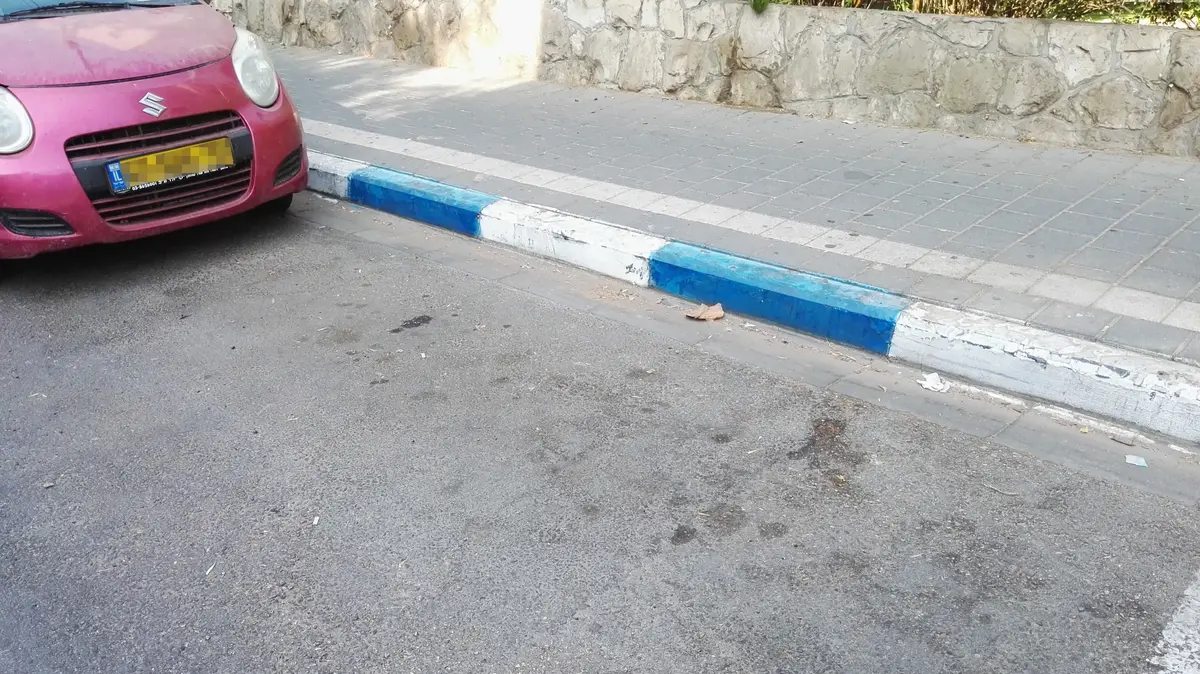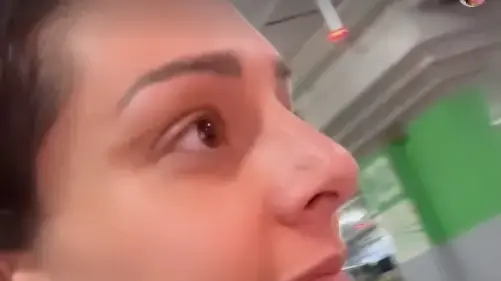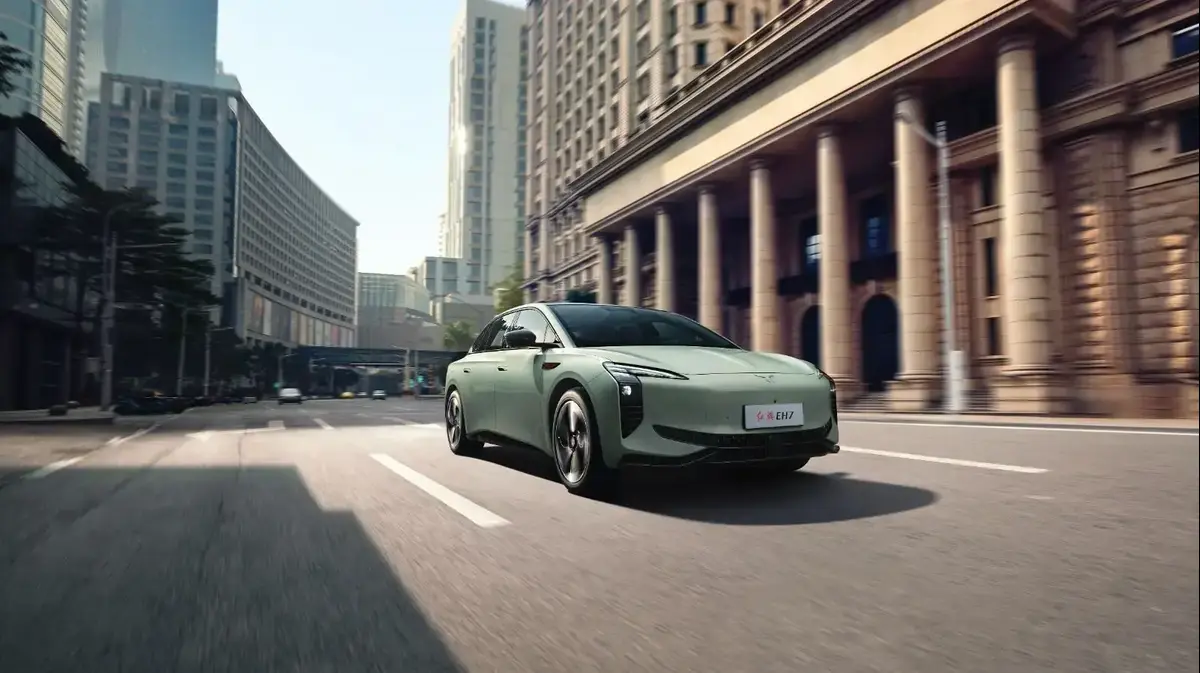vehicle
Car News
Expropriation of parking for residents and a six-story parking lot for the municipality, does not make sense?
The Tel Aviv Municipality expropriates parking spaces in favor of cooperative transportation projects, public transportation routes and parking of electric vehicles.
The goal: to force residents to abandon their private vehicles.
A group of residents in the east of the city decided to go out and fight against the new sectors
Tags
parking
Tel Aviv Jaffa
cell
Tel Aviv Municipality
Bitzaron
light rail
Parking
Rachel Vox, Angle
Friday, 05 November 2021, 08:00 Updated: 08:07
Share on Facebook
Share on WhatsApp
Share on general
Share on general
Share on Twitter
Share on Email
0 comments
On October 18, a heated discussion took place in the Knesset's Economics Committee on the parking reform included in the Arrangements Law - and at the end a limited version of the reform was approved, which stipulated that residents of large cities could park for free in blue and white only in their area.
There is no doubt that among the cities of Israel, in Tel Aviv the shortage of parking is the most severe, where many of its residents have no real solution to their parking needs near the house, but they also do not have the ability to fully rely on public transportation.
What do you do in such a case?
In one neighborhood in East Tel Aviv, they decided to go to war against the decision-makers in the municipality.
More on Walla!
Blue and white revolution: How will the parking reform affect the residents of the big cities?
To the full article
According to Hadas, Rabbi Saidon, one of the leaders of the residents' organization in the Bitzaron-Ramat Israel neighborhood in East Tel Aviv, residents of this area suffer from an acute parking shortage.
"This is a huge and very crowded area that stretches from Nahalat Yitzhak in the north to the Argazim neighborhood in the south, which has almost no free parking lots for the benefit of the residents - especially compared to less crowded areas, such as the Yarkon east and west of Ayalon," she says.
"This is the leading district in the number of families in Tel Aviv - it has almost 10,000 families, twice the average in the city," adds Rabbi Seydon.
"Traveling by private car is often the only sensible choice in a family of four or more. Beyond that, in the State of Israel there is no public transportation almost 30 hours a week, so the issue of private car in it is not a matter of privilege - but of freedom of movement."
Without public transportation, a car is not a privilege is a necessity (Photo: Erez Michaeli)
According to Rabbi Saidon, the parking shortage in the east of the city is only getting worse, with the main reason being the large number of public buildings and businesses in the area, which attract many residents from other neighborhoods - parked in places where residents could park in the past. "When we come home from work in the afternoon or when a parent comes to pick up his child, many times there is simply nowhere to shop," she says.
It should be noted that this is not a story of just one neighborhood, and many Tel Avivians feel that the municipality is reducing the number of parking spaces in their area, including in favor of Ototel car parking, designated parking for bicycles and scooters, bicycle lanes, public transportation lanes and more.
The future is expected to be much more challenging for private car owners: A plan to change the parking lot in the city, formulated by the Tel Aviv Municipality last year and not yet approved by Mayor Ron Huldai, includes limiting the number of municipal parking tickets each household can receive, significantly increasing street parking , Limiting the duration of continuous parking on the city streets (in blue and white) to only a few hours in commercial areas, expropriation of parking spaces from cars in favor of bicycle lanes and the establishment of "park and ride" parking lots.
More on Walla!
This is not the price: free public transportation is not the answer to the endless traffic jam
To the full article
The public transportation solution for the residents of the neighborhood does not provide and will not improve (Photo: Reuven Castro)
When the mayor travels by bus
"The Tel Aviv municipality should use the public funds collected for the parking fund (money paid to the local authority by the residents for the construction of public parking lots, R.W.) and all other public funds to provide parking for the city's residents," says Rabbi Seydon. The Tel Aviv Municipality, towers and new high-rise buildings should include 0.8 parking spaces per housing unit. "We in the neighborhood have less than 0.7 parking spaces per housing unit. We call on the municipality to use the underground to create parking spaces - this is accepted all over the world, and is also included in the master plan of the Tel Aviv municipality for construction in public areas. "
Residents of the Bitzaron-Ramat Israel neighborhood, which will continue to be far from the transportation system in the future, are in fact seeking the construction of a public parking lot owned by the municipality.
"It is important to be clear that we did not ask for a free parking lot for us, but a night parking policy for the residents of the neighborhood, such as is practiced in almost the entire city," explains Rabbi Seydon.
"The Bitzaron Ramat Israel neighborhood is the first sustainable neighborhood in the city of Tel Aviv and is actually associated with the effort to reduce the use of private vehicles, but the problem is that we live in Israel, which does not allow life without a vehicle for individuals and certainly not families."
Meanwhile, it should be noted the municipality itself will build to the glory of the new municipal building six floors of underground parking for its employees, as part of its new structure, which is being erected these days.
The better part?
The new building will be built right at the Arlozorov-Ibn Gvirol junction - above not one - but two light rail lines that will pass there (purple and green).
The new municipal building will include 6-story underground parking (Photo: Erez Michaeli)
How can you switch to PR when there is no such thing?
A cheap and environmental solution to the parking problem in East Tel Aviv and in general could have been beyond the use of public transportation.
However, according to Rabbi Saidon, the bus service to the neighborhood does not meet the needs of the residents.
"We have been fighting endlessly for increased public transport, for over seven years we have been in discussions with the Ministry of Transport on the subject - but the frequency of lines is not enough and in the future our neighborhood will not be within walking distance of the axis and mass transit stations," she says.
"Until the mayor himself uses public transportation, it is impossible to give all city residents a sweeping instruction to do so."
Will the parents travel to get the children out of kindergarten?
(Photo: Keinan Cohen, Keinan Cohen)
According to her, the use of bicycles and scooters, popular in Tel Aviv, is especially dangerous for the youth, and irrelevant to certain populations, such as the elderly and parents of infants: "We agree with the municipality's policy, "For an ideal policy that is detached from the needs of the residents and their difficulties. It is not possible to force people to use public transportation if its infrastructure is damaged."
As part of their struggle, the residents worked extensively with the Tel Aviv Municipality, and met with representatives of the municipality's Department of Transportation, Parking and Traffic. Among other things, they wanted to build a parking lot under a school that would be built in the neighborhood, and signed over a thousand people on Internet and physical petitions on the subject. Recently, residents received a negative answer from the municipality on the issue of the construction of the underground car park, according to the municipality due to the Ministry of Education's reservations, logistical and environmental problems and unreasonable cost. Today, the dialogue between the residents and the municipality on the issue continues.
The residents proposed to build an underground parking lot for the use of all the residents as part of the newly established school (Photo: Niv Aharonson)
Charge for parking?
"In the last ten years, with the gentrification in East Tel Aviv, the socio-economic status of the residents has increased, there has been a growth in the rate of car maintenance among the residents - and the place is over," explains Dr. Yoav Lerman, an urban planning expert and partner at Planet.
According to Lerman, the phenomenon is not unique to East Tel Aviv. "This is a problem that occurs in city centers, although it is not very common in Israel, which does not have many urban areas," he says. And its environment, and the problem also exists in Haifa, although there it is more minor. "
So what's the solution?
Should the Tel Aviv Municipality and the other large municipalities in Israel build parking spaces for the free use of residents of areas where there is a parking shortage?
According to Lerman, the answer is no.
"As long as parking is free, there is no chance the problem will be solved," he says.
According to him, the solution to the problem is actually to charge for parking, even from the residents of the area.
"When parking has no price, it becomes a wasted resource and suffers from a lack of management. If parking has a cost, some people will pay more for the option to park - but the amount of cars that never move will decrease and parking will be available for those who really need them."
On the other hand, free parking is discriminatory and incorrect in terms of transportation (Photo: Nir Ben-Tovim, Nir Ben-Tovim)
Treat parking as a rational product
According to Lerman, using public funds to build additional parking lots in cities (underground, for example) is fundamentally problematic. "When the municipality throws the area away for free parking, it is actually giving a free benefit only to car owners - and not giving anything to those without a car," he says. "Thus, households that do not own cars subsidize those that do have them, which statistically knocks out the weaker ones."
"The use of public money means that everyone together will buy parking for residents of these areas," Lerman says. "Is this the right use of public money, which also competes for education, welfare and health? That is a question."
According to Lerman, free parking also comes at a price, which is a waste of time and frustration. "In Soviet Russia, everyone had bread, and for free - but they had to stand in a huge queue to get it," he says. "The state of parking is not far off: everyone has enough, you just have to wait and wait. People have a hard time imagining it,But it is possible to manage parking, and treat it as a rational product, "he concludes.
The light rail does not reach Bitzaron, it does reach the municipality, guess who gets a huge parking lot?
(Photo: Reuven Castro)
The Tel Aviv Municipality responded:
The Tel Aviv-Yafo Municipality is aware of the parking shortage that exists in the neighborhood and is working to provide diverse solutions. This area is in the process of developing employment towers, which also include public parking or unattached employment parking, which can also be used by residents at night. In addition, the municipality is promoting arrangements that will allow residents to purchase a monthly subscription at a discounted price for overnight parking in front of the privately owned public parking lots that exist in the area, all while continuing to develop infrastructure and services for alternative transportation for private vehicles, including public transportation routes. Bicycles, widening of the walking space for pedestrians and accessibility of other means of transportation.
Regarding the parking standard - the policy for parking standard 0.8 applies to new lawsuits. We would like to clarify that in the renewal according to TMA / 38 or master plans approved before 2020, which include the buildings in question, the valid standard is according to Plan H - one parking space per housing unit.
Regarding the proposal for the construction of the parking lot - as a policy, the municipality does not build underground parking lots under educational institutions and the Ministry of Education is not inclined to support this.
Moreover, the design of underground parking will demand the establishment of ramp up and down, which will affect the road itself, including the cancellation of parking spaces. "
On Establishing underground parking lot at the new City Hall, the municipality said in response that
it is the structure that includes the municipal offices and municipal companies, cluster kindergartens and central public garden. during the day, will be used for parking the municipal employees and municipal companies and in the evening and at night it will serve the residents of the neighborhood.
the article was prepared by angle - the news agency of the Israel Society of Ecology and Environmental Sciences
Share on Facebook
Share on WhatsApp
Share on general
Share on general
Share on Twitter
Share on Email
0 comments














